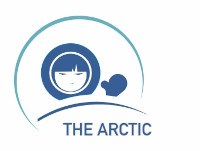Founded in the 12th century, the Principality of Muscovy, was able to emerge from over 200 years of Mongol domination (13th-15th centuries) and to gradually conquer and absorb surrounding principalities. From the 16th century until the establishment of the Soviet Union in 1917, Russia was a Tsardom, with many historical leaders.
During the Cold War period The Soviet Union and the US participated in extensive arms race, the Arctic becoming one of the main playgrounds for nuclear submarines.
Due to this frozen political atmosphere, the Arctic research and tourism were minimal up until the 1990's when General Secretary Mikhail Gorbachev (1985-91) introduced glasnost (openness) and perestroika (restructuring) in an attempt to modernize Communism and end the east-west confrontation.
His initiatives gradually released forces that by December 1991 splintered the USSR into Russia and 14 other independent republics.
A country of gargantuan proportions, Russia's borders extend from Europe to Asia. With as its capital Moscow, this vast land is home to some 150 million people, out of which less than 1 % are of indigenous origin.
In the Arctic context, Russia is perhaps one of the most significant influences, playing a key role both in Arctic oil and gas development as well as in Arctic Shipping.
It is estimated that vast amounts of the Arctic undiscovered petroleum reserves are situated on the Russian continental shelf. In addition, it looks that the Northeast Passage has more potential to become the main Arctic shipping route from Asia to Europe due to the sea ice retrieval and open ice conditions over the summer months.
Sources:CIA World Factbook







